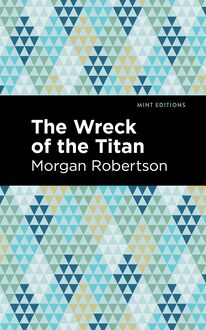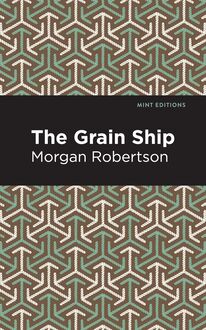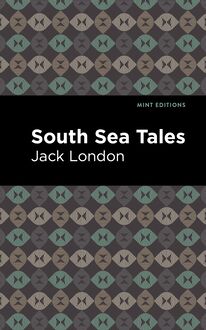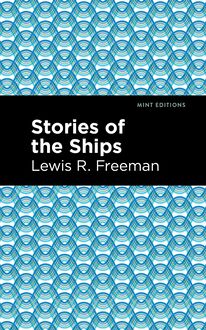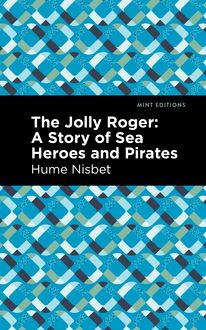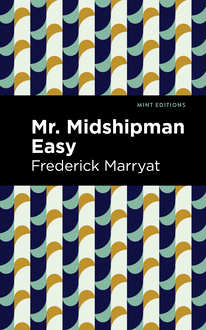-
 Univers
Univers
-
 Ebooks
Ebooks
-
 Livres audio
Livres audio
-
 Presse
Presse
-
 Podcasts
Podcasts
-
 BD
BD
-
 Documents
Documents
-
- Cours
- Révisions
- Ressources pédagogiques
- Sciences de l’éducation
- Manuels scolaires
- Langues
- Travaux de classe
- Annales de BEP
- Etudes supérieures
- Maternelle et primaire
- Fiches de lecture
- Orientation scolaire
- Méthodologie
- Corrigés de devoir
- Annales d’examens et concours
- Annales du bac
- Annales du brevet
- Rapports de stage
La lecture à portée de main
Vous pourrez modifier la taille du texte de cet ouvrage
Découvre YouScribe en t'inscrivant gratuitement
Je m'inscrisDécouvre YouScribe en t'inscrivant gratuitement
Je m'inscrisEn savoir plus
Vous pourrez modifier la taille du texte de cet ouvrage
En savoir plus

Description
Wreck of the Pacific (1841) is a novel by Frederick Marryat. Inspired by the author’s experience as a captain in the Royal Navy, Wreck of the Pacific is a tale of disaster and survival on the high seas. Responding to such novels as Robinson Crusoe (1719) and The Swiss Family Robinson (1812), Marryat hoped to tell an entertaining story with a Christian moral while remaining true to the dangers of nautical life. “I am an old man, and it is of little consequence. I care little whether I am taken away a year or two sooner, but I do not like to see blossoms cut off in early spring: I may be of use if I remain, for I’ve an old head upon my shoulders, and I could not leave you all to perish when you might be saved if you only knew how to act. But here the seamen come—the boat is all ready, and they will now take poor Captain Osborn with them.” When the Pacific sails through a terrible storm, losing its masts and captain in one fell swoop, its crew are forced to make difficult decisions. Below deck, the Seagrave family are virtually helpless, left to the mercy of men and nature alike. While the first mate and surviving sailors load most of the provisions onto the only remaining yawl, Masterman Ready remains behind with the terrified landlubbers, offering his services should they find a way to survive. Soon, the ship drifts toward the shores of a deserted island, giving them the chance they so desperately need to survive. With a beautifully designed cover and professionally typeset manuscript, this edition of Frederick Marryat’s Wreck of the Pacific is a classic of British literature reimagined for modern readers.
Sujets
Informations
| Publié par | Mint Editions |
| Date de parution | 03 août 2021 |
| Nombre de lectures | 0 |
| EAN13 | 9781513294322 |
| Langue | English |
| Poids de l'ouvrage | 1 Mo |
Informations légales : prix de location à la page 0,0500€. Cette information est donnée uniquement à titre indicatif conformément à la législation en vigueur.
Extrait
Wreck of the Pacific
Frederick Marryat
Wreck of the Pacific was first published in 1841.
This edition published by Mint Editions 2021.
ISBN 9781513291475 | E-ISBN 9781513294322
Published by Mint Editions®
minteditionbooks.com
Publishing Director: Jennifer Newens
Design & Production: Rachel Lopez Metzger
Project Manager: Micaela Clark
Typesetting: Westchester Publishing Services
C ONTENTS I II III IV V VI VII VIII IX X XI XII XIII XIV XV XVI XVII XVIII XIX XX XXI XXII XXIII XXIV XXV XXVI XXVII XXVIII XXIX XXX XXXI XXXII XXXIII XXXIV XXXV XXXVI XXXVII XXXVIII XXXIX XL XLI XLII XLIII XLIV XLV XLVI XLVII XLVIII XLIX L LI LII LIII LIV LV LVI LVII LVIII LIX LX LXI LXII LXIII LXIV LXV LXVI LXVII
I
It was in the month of October, 18—, that the Pacific , a large ship, was running before a heavy gale of wind in the middle of the vast Atlantic Ocean. She had but little sail, for the wind was so strong, that the canvas would have been split into pieces by the furious blasts before which she was driven through the waves, which were very high, and following her almost as fast as she darted through their boiling waters; sometimes heaving up her stern and sinking her bows down so deep into the hollow of the sea, that it appeared as if she would have dived down underneath the waves; but she was a fine vessel, and the captain was a good seaman, who did what he considered best for the safety of his vessel, and then put his trust in that Providence who is ever watchful over us.
The captain stood before the wheel, watching the men who were steering the ship; for when you are running before a heavy gale, it requires great attention to the helm: and as he looked around him and up at the heavens, he sang in a low voice the words of a sea song:
“One wide water all around us,
All above us one black sky.”
And so it was with them;—they were in the middle of the Atlantic, not another vessel to be seen, and the heavens were covered with black clouds, which were borne along furiously by the gale; the sea ran mountains high, and broke into large white foaming crests, while the fierce wind howled through the rigging of the vessel.
Besides the captain of the ship and the two men at the wheel, there were two other personages on deck: one was a young lad about twelve years old, and the other a weather-beaten old seaman, whose grisly locks were streaming in the wind, as he paced aft and looked over the taffrail of the vessel.
The young lad, observing a heavy sea coming up to the stern of the vessel, caught hold of the old man’s arm, crying out—“Won’t that great wave come into us, Ready?”
“No, Master William, it will not: don’t you see how the ship lifts her quarters to it?—and now it has passed underneath us. But it might happen, and then what would become of you, if I did not hold on, and hold you on also? You would be washed overboard.”
“I don’t like the sea much, Ready; I wish we were safe on shore again,” replied the lad. “Don’t the waves look as if they wished to beat the ship all to pieces?”
“Yes, they do; and they roar as if angry because they cannot bury the vessel beneath them: but I am used to them, and with a good ship like this, and a good captain and crew, I don’t care for them.”
“But sometimes ships do sink, and then everybody is drowned.”
“Yes; and very often the very ships sink which those on board think are most safe. We can only do our best, and after that we must submit to the will of Heaven.”
“What little birds are those flying about so close to the water?”
“Those are Mother Carey’s chickens. You seldom see them except in a storm, or when a storm is coming on.”
The birds which William referred to were the stormy petrels.
“Were you ever shipwrecked on a desolate island like Robinson Crusoe?”
“Yes, Master William, I have been shipwrecked; but I never heard of Robinson Crusoe. So many have been wrecked and undergone great hardships, and so many more have never lived to tell what they have suffered, that it’s not very likely that I should have known that one man you speak of, out of so many.”
“Oh! but it’s all in a book which I have read. I could tell you all about it—and so I will when the ship is quiet again; but now I wish you would help me down below, for I promised mamma not to stay up long.”
“Then always keep your promise like a good lad,” replied the old man; “now give me your hand, and I’ll answer for it that we will fetch the hatchway without a tumble; and when the weather is fine again, I’ll tell you how I was wrecked, and you shall tell me all about Robinson Crusoe.”
Having seen William safe to the cabin door, the old seaman returned to the deck, for it was his watch.
Masterman Ready, for such was his name, had been more than fifty years at sea, having been bound apprentice to a collier which sailed from South Shields, when he was only ten years old. His face was browned from long exposure, and there were deep furrows on his cheeks, but he was still a hale and active man. He had served many years on board of a man-of-war, and had been in every climate: he had many strange stories to tell, and he might be believed even when his stories were strange, for he would not tell an untruth. He could navigate a vessel, and, of course, he could read and write. The name of Ready was very well suited to him, for he was seldom at a loss; and in cases of difficulty and danger, the captain would not hesitate to ask his opinion, and frequently take his advice. He was second mate of the vessel.
The Pacific was, as we have observed, a very fine ship, and well able to contend with the most violent storm. She was of more than four hundred tons burthen, and was then making a passage out to New South Wales, with a valuable cargo of English hardware, cutlery, and other manufactures. The captain was a good navigator and seaman, and moreover a good man, of a cheerful, happy disposition, always making the best of everything, and when accidents did happen, always more inclined to laugh than to look grave. His name was Osborn. The first mate, whose name was Mackintosh, was a Scotsman, rough and ill-tempered, but paying strict attention to his duty—a man that Captain Osborn could trust, but whom he did not like.
Ready we have already spoken of, and it will not be necessary to say anything about the seamen on board, except that there were thirteen of them, hardly a sufficient number to man so large a vessel; but just as they were about to sail, five of the seamen, who did not like the treatment they had received from Mackintosh, the first mate, had left the ship, and Captain Osborn did not choose to wait until he could obtain others in their stead. This proved unfortunate, as the events which we shall hereafter relate will show.
II
Master William, whom we have introduced to the reader, was the eldest boy of a family who were passengers on board, consisting of the father, mother, and four children: his father was a Mr. Seagrave, a very well-informed, clever man, who having for many years held an office under government at Sydney, the capital of New South Wales, was now returning from a leave of absence of three years. He had purchased from the government several thousand acres of land; it had since risen very much in value, and the sheep and cattle which he had put on it were proving a source of great profit. His property had been well managed by the person who had charge of it during his absence in England, and he was now taking out with him a variety of articles of every description for its improvement, and for his own use, such as furniture for his house, implements of agriculture, seeds, plants, cattle, and many other things too numerous to mention.
Mrs. Seagrave was an amiable woman, but not in very strong health. The family consisted of William, who was the eldest, a clever, steady boy, but, at the same time, full of mirth and humour; Thomas, who was six years old, a very thoughtless but good-tempered boy, full of mischief, and always in a scrape; Caroline, a little girl of seven years; and Albert, a fine strong little fellow, who was not one year old: he was under the charge of a black girl, who had come from the Cape of Good Hope to Sydney, and had followed Mrs. Seagrave to England. We have now mentioned all the people on board of the Pacific: perhaps we ought not to forget two shepherd’s dogs, belonging to Mr. Seagrave, and a little terrier, which was a great favourite of Captain Osborn, to whom she belonged.
It was not until the fourth day from its commencement that the gale abated, and then it gradually subsided until it was nearly a calm. The men who had been watching night after night during the gale now brought all their clothes which had been drenched by the rain and spray, and hung them up in the rigging to dry: the sails, also, which had been furled, and had been saturated by the wet, were now loosened and spread out that they might not be mildewed. The wind blew mild and soft, the sea had gone down, and the ship was running through the water at the speed of about four miles an hour. Mrs. Seagrave, wrapped up in a cloak, was seated upon one of the arm-chests near the stern of the ship, her husband and children were all with her enjoying the fine weather, when Captain Osborn, who had been taking an observation of the sun with his sextant, came up to them.
“Well, Master Tommy, you are very glad that the gale is over?”
“I didn’t care,” replied Tommy, “only I spilt all my soup. But Juno tumbled off her chair, and rolled away with the baby, till papa picked them both up.”
“It was a mercy that poor Albert was not killed,” observed Mrs. Seagrave.
“And so he might have been, if Juno had not thought only of him and nothing at all about herself,” replied Mr. Seagrave.
“That’s very true, sir,” replied Captain Osborn. “She saved the child, and, I fear, hurt herself.”
“I thump my head very hard,” said Juno, smiling.
“Yes, and it’s lucky that you have a good thick woolly coat ov
-
 Univers
Univers
-
 Ebooks
Ebooks
-
 Livres audio
Livres audio
-
 Presse
Presse
-
 Podcasts
Podcasts
-
 BD
BD
-
 Documents
Documents
-
Jeunesse
-
Littérature
-
Ressources professionnelles
-
Santé et bien-être
-
Savoirs
-
Education
-
Loisirs et hobbies
-
Art, musique et cinéma
-
Actualité et débat de société
-
Jeunesse
-
Littérature
-
Ressources professionnelles
-
Santé et bien-être
-
Savoirs
-
Education
-
Loisirs et hobbies
-
Art, musique et cinéma
-
Actualité et débat de société
-
Actualités
-
Lifestyle
-
Presse jeunesse
-
Presse professionnelle
-
Pratique
-
Presse sportive
-
Presse internationale
-
Culture & Médias
-
Action et Aventures
-
Science-fiction et Fantasy
-
Société
-
Jeunesse
-
Littérature
-
Ressources professionnelles
-
Santé et bien-être
-
Savoirs
-
Education
-
Loisirs et hobbies
-
Art, musique et cinéma
-
Actualité et débat de société
- Cours
- Révisions
- Ressources pédagogiques
- Sciences de l’éducation
- Manuels scolaires
- Langues
- Travaux de classe
- Annales de BEP
- Etudes supérieures
- Maternelle et primaire
- Fiches de lecture
- Orientation scolaire
- Méthodologie
- Corrigés de devoir
- Annales d’examens et concours
- Annales du bac
- Annales du brevet
- Rapports de stage
